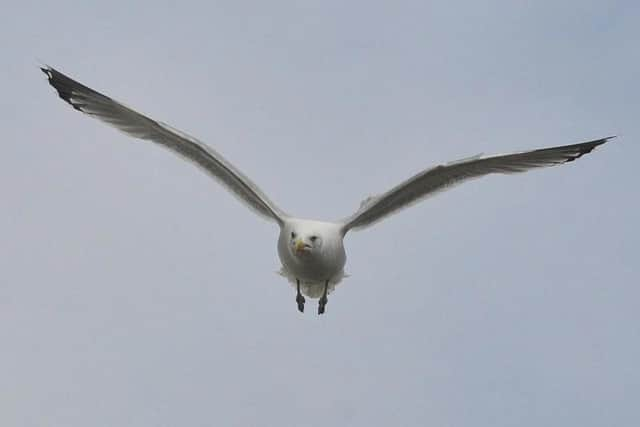Bird Flu warning in Blackpool after dead seabird tests positive for Avian influenza
and live on Freeview channel 276
Blackpool Council say there is ‘minimal risk’ to public health but are warning people to avoid contact with wild birds.
Dog owners are also urged to keep a close eye on their pets while out walking near the coast, however the risk to dogs from avian influenza is usually very low.
Advertisement
Hide AdAdvertisement
Hide AdA spokesman for Blackpool Council said: “For a number of months there have been reports elsewhere in the country that Avian influenza is affecting seabirds.


“We have now witnessed some seabirds in Blackpool displaying symptoms and unfortunately one dead bird has tested positive for Avian influenza.
“The risk to public health is minimal but please avoid contact with wild birds and ensure dogs keep their distance.
“If you see an unwell or dead bird please DO NOT touch it.
“Please report immediately to DEFRA Rural Services Helpline on 03000 200301.”
Advertisement
Hide AdAdvertisement
Hide AdIt’s not the first time Bird Flu has been detected in Blackpool this year. An outbreak in January saw 25 swans and two geese die of the disease in Stanley Park.
Other outbreaks have been confirmed in the Fylde, with surveillance zones in force in Poulton, Kirkham, Salwick.
How bird flu spreads to humans
Bird flu is spread by close contact with an infected bird (dead or alive).
This includes:
- touching infected birds
- touching droppings or bedding
- killing or preparing infected poultry for cooking
What about dogs and Bird Flu?
A spokesman for the RSPCA said: "Avian influenza (AI) is primarily a disease of birds, though there have been reports of highly pathogenic AI in seals and foxes, so bird flu can cross into other species.
Advertisement
Hide AdAdvertisement
Hide Ad"As some dogs may be attracted to – and pick up – dead or dying birds, the RSPCA always recommends keeping dogs under control around wildlife.
"Although the risk of your dog contracting AI is extremely low, your dog could become contaminated and spread it to other areas.
"Also dead and dying birds could carry a range of other diseases which might present a health risk to your dog."
